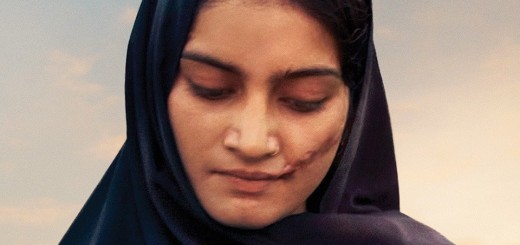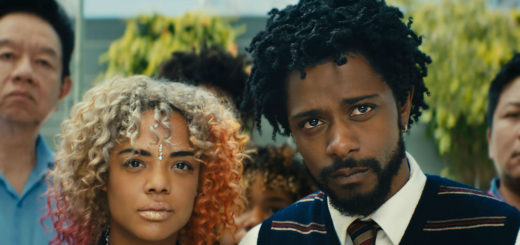SING Review

Director: Garth Jennings
Genre: Family Animation
Year: 2016
My mother refuses to watch movies without “happy endings.” As such, I’ve seen the gamut of animated and family-friendly features. While Disney-Pixar rarely, if ever, misses the mark, Illumination Entertainment is another ballgame entirely. The rulers of Minion merchandise, Illumination never has to make another even remotely palatable feature to come out on top financially, which has led to several softballs on their part. Going in with my expectations set firmly around zero, I’m not going to sit here and pretend that SING isn’t enjoyable for what it is. If you woke up with the desire to spend your hard-earned cash on the promise of seeing a bunch of animated members of the animal kingdom sing and dance to pop tunes of the last 70 years, then buster, do I have a film for you.
Even further stacking the cards against itself is the fact that SING is an ensemble piece (but more on that later). Our anchor in unfamiliar waters is Buster Moon (Matthew McConaughey), a fast-talking shyster who runs a theater that’s been dipping into the red. When he gets the dreaded call from the bank, he plans to throw a singing competition bonanza that will turn his luck around. The only catch is, a typo has promised the participants a prize of $100,000, instead of the $1,000 he originally intended. With the contestants including the harried pig mother Rosita (Reese Witherspoon), her flamboyant dance partner Gunter (Nick Kroll), the cripplingly shy elephant Meena (Tori Kelly), the slimeball street musician mouse Mike (Seth MacFarlane), the mobster gorilla Johnny (Taron Egerton), and the punk hedgehog Ash (Scarlett Johansson), the stage is set for a whole slew of set pieces that will ensure closure for straightforward character arcs.
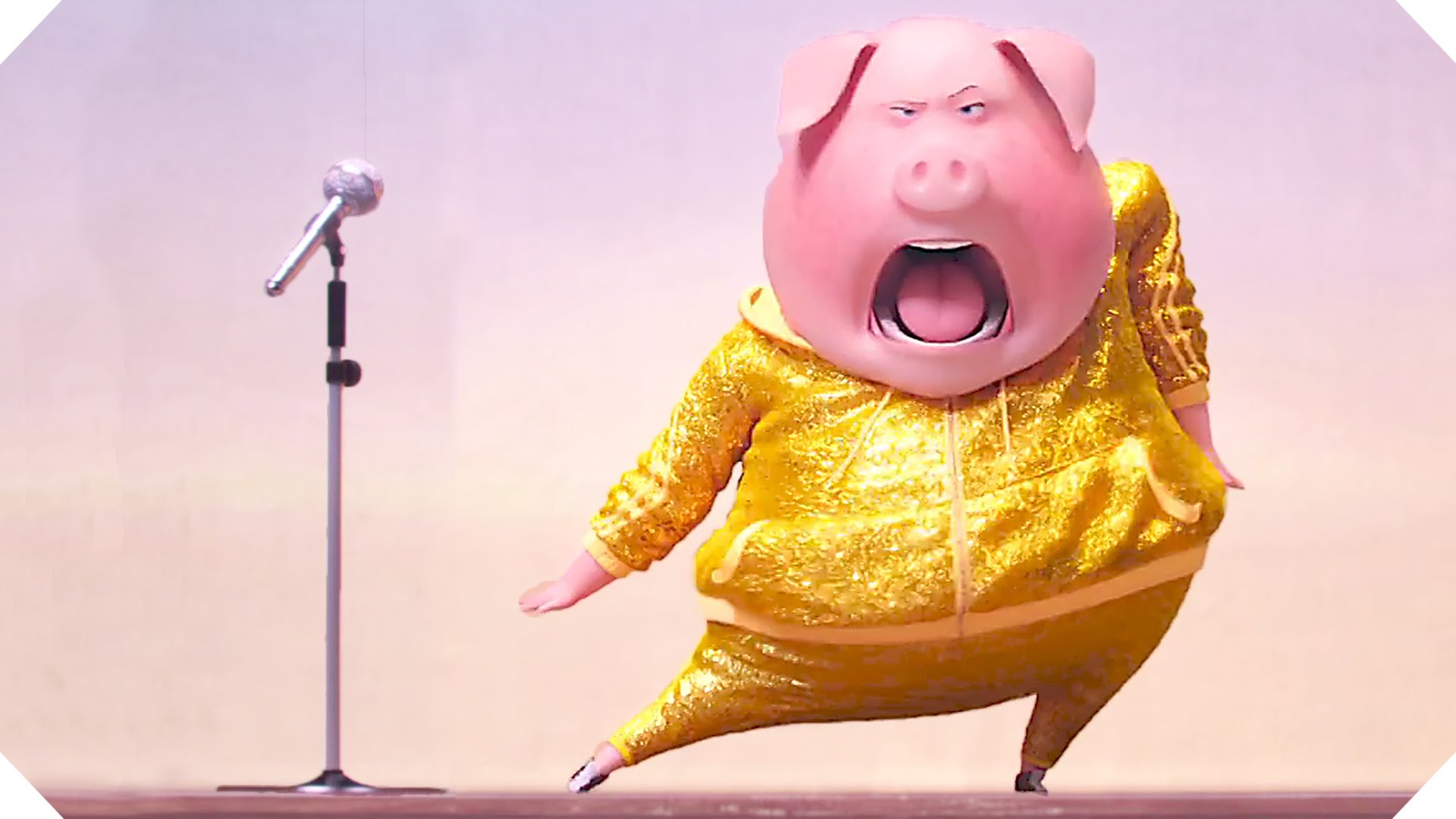
Me after two drinks
And…that’s pretty much the long and short of it. Illumination tends to aim for lower common denominators than Disney-Pixar, so the main cast’s development as characters is summarily and satisfactorily addressed. Rosita realizes that there’s more to her existence than taking care of her 25 piglets; Meena overcomes her shyness just in time for the big ending bonanza; Johnny becomes comfortable enough with himself to commit to his passion of singing instead of the legacy of family crime his father would prefer him to participate in; Ash stays strong in the face of a kids’ movie version of an abusive boyfriend, eventually gaining the confidence to pen and perform her own song. You can see everything coming from a mile away, but it’s an Illumination Entertainment picture, so I’ll let any minor griping at obviousness slide.
However, what is less excusable is the movie’s near-indifference to Buster’s character. As you’ll notice, he wasn’t brought up as completing an arc in the paragraph above, because despite having the largest aggregate screentime, on a character level, he is among the weakest members of the cast. Buster is superficially cool; reminiscent of Josh Brolin’s Eddie Mannix from HAIL, CAESAR! (fight me), Buster moves from one grandiose set piece to another, fixing problems that are loosely-affiliated with the overarching conflict willy-nilly. The shame of it is that, if this were a film with more heart, we would have zeroed in on Buster’s implied guilt at not living up to his father’s expectations, and his insecurities revolving around being accepted. Instead, we’re only given one scant scene where he hints at either of these, rendering him a character who can seemingly do or feel no wrong. While he states that he’s terrified as he attempts to court the rich theater star Nana Noodleman (Jennifer Saunders) for a sponsorship, we never manage to buy in, making his character a difficult one to identify with.
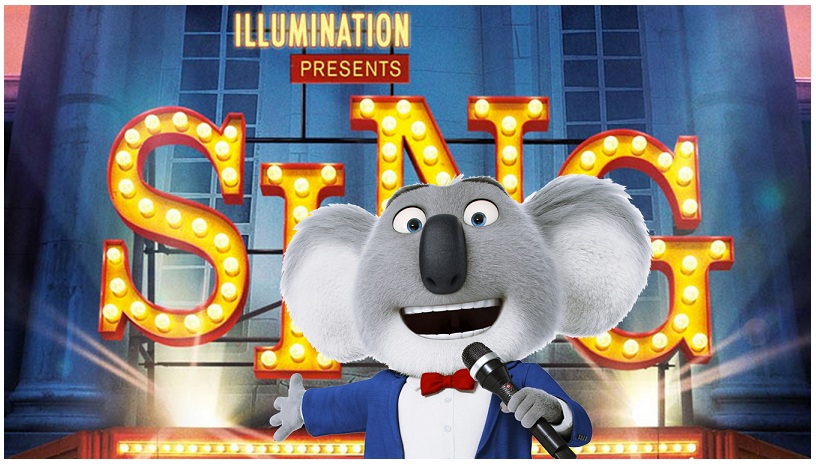
A missed opportunity for Buster at one point to say “It’s going to be alright, alright, alright…”
Somewhat on the note of shirking emotional resonance for flashy musical numbers, once it’s revealed that Buster doesn’t actually have the $100,000, the characters are only mad for roughly 30 seconds! If there’s a moral to this story, it’s that you can take advantage of your friends and peers, because they’ll immediately forgive you and want to help you achieve your dreams in the face of betrayal. Another major complaint is that there’s no discernible main antagonist. The bank is always floating in the background as a specter, but as mentioned before, considering how generally unconcerned Buster appears about the whole thing, we never feel the need to be quaking in our boots. The most tangible villains are the trio of mobbed-up bears who pursue Mike after he cheats at gambling, but considering that Mike is unfunny and mean-spirited, many audience members will be rooting for him to get what he deserves.
As such, SING is most readily comparable to the PG version of MAGIC MIKE XXL. Yes, I am dead serious, and yes, I continue to invite you to fight me. In fact, if anything, SING is MAGIC MIKE XXL with more plot (even if it may not offer the anticipated amount of closure). The meat of the film relies on the base pleasures to be had in witnessing the synchronized art forms of dance and music set to widely accessible pop songs, and the ending montage of just that is affecting, as we see our characters shake, shimmy, and jive while doing what fulfills them. Much like its strip-indebted predecessor, the first and second acts are merely vehicles for the humanistic orgy of spectacle that constitutes the third. And what do you know, the third act is the best part of the movie for it.
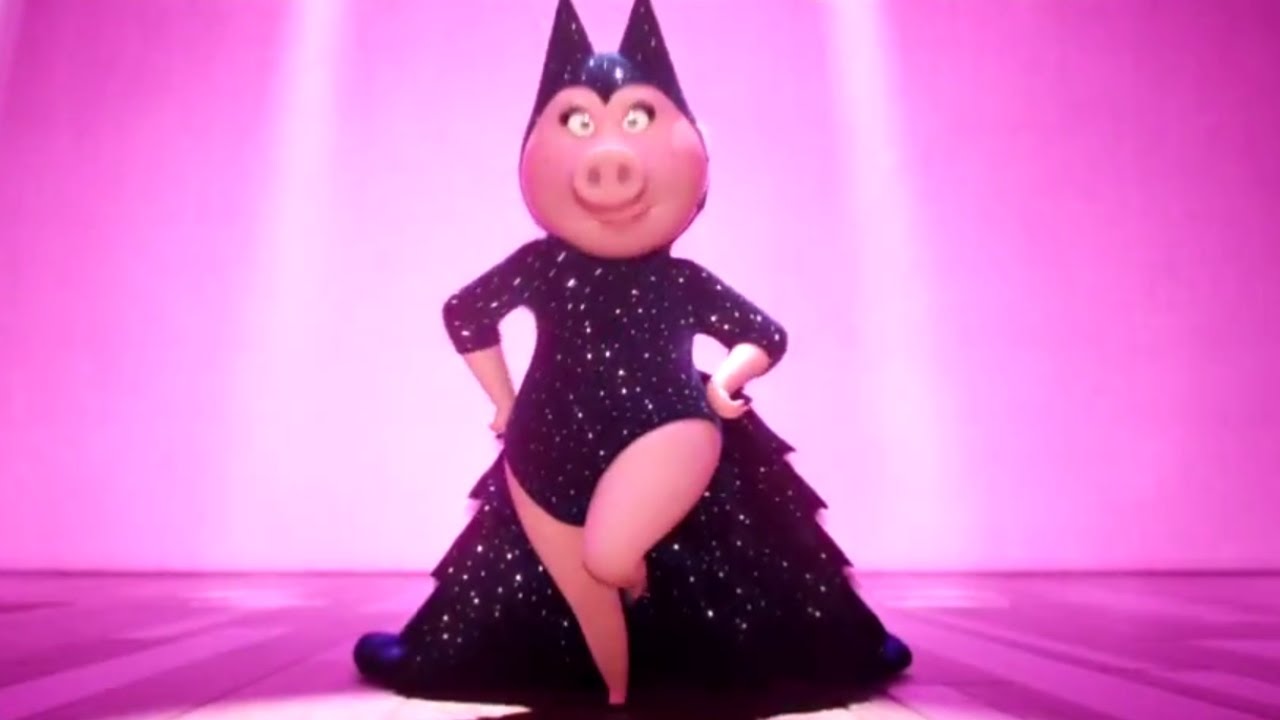
Whatever fetish this is, I’m into it
I’m not going to sit here and tell a bunch of 18-30 year olds to go out in the preamble to awards season and see SING instead of literally anything else. But what I am going to say is that if you’re stuck with old people or kids, this is better than you’d think. You get to see a gorilla rock the shit out of an Elton John song (although the potential racial politics of his character arc seem rather obliviously constructed), two pigs dance to a dubstep remix of Taylor Swift, and only have to suffer through one fart joke. While it’s clear that the creators over at Illumination saw ZOOTOPIA and were magically inspired to do their own take on sentient animals, you won’t hate this.
Verdict: Do Not Recommend

